speak so you can be found
on how articulating your inner world helps the right people find you
Someone was telling me about her relationship the other day: “He just doesn’t see me. We can’t talk properly. I don’t think we really understand each other.”
She sounded devastatingly and quietly tired, like someone flicking a flashlight through fog, trying to find the edges of something that never quite takes shape.
I don’t think this is rare, and it made me think about true love and its connection to identity.
I think true love is inseparable from selfhood. Love, at its best, sharpens who we are. But the paradox is that it often requires clarity to begin with. The more honestly and precisely you can express your interior world, the more easily the right person can find and respond to it. Sometimes, if you’re lucky, love itself becomes the very force that helps bring that clarity into focus.
I’ve come to think of that feeling she described of not being seen, as a kind of blurriness. This doesn’t emerge from a lack of love, necessarily, but a lack of legibility of self.
Blurriness is a soft-edged kind of confusion, which emerges when we haven’t yet found the language to name who we are. This relates to relationships, because when you can’t name yourself, it’s almost impossible for anyone else to meet you properly.
If someone can’t see us, it’s usually one of two things: sometimes, they don’t yet have the eyes to see. Other times, we’re not expressing ourselves in a way that can even be clearly perceived.
It’s a two-way mechanism. We need others to be capable of lucid perception, to be able to witness the signal. But we can make their job easier by expressing ourselves with precision.
It’s only natural that blurry people tend to date other blurry people. You can’t match a frequency you don’t emit, and we all start blurry. No one emerges fully formed, but some people get clearer, faster and I think there are ways to do that.
the beauty of precision
There’s a subtle tragedy in being too shapeless to be met properly, because specificity, in what you want, what you fear, how you love, is what allows the right people to find you.
Vagueness keeps you lost, and thus, more lonely. In contrast, specific articulation brings you into focus, and connection thrives on particularity.
A person who knows they love 1980s Japanese jazz, pumpkin soup, moral complexity, and peach-skin textures has a better chance of finding someone who loves those same things, or someone who complements them in ways that are interesting.
A specific taste profile lets others see where their weirdness fits against yours, like puzzle pieces, but blurrier. However, to express your inferiorities, you have to first know them, which might be the harder part. You have to be slightly in focus to yourself.
blur vs. noise
There’s a useful photography metaphor in here that E thought of when I was telling him about this idea.
In low-light conditions, cameras struggle. You either get blur, a soft, smeared image, or noise, a grainy, peppered mess. Neither is actually a true picture of what’s there, but they’re different distortions. Blur smooths over detail, while noise exaggerates uncertainty.
Sometimes, to remove noise, the software adds blur. To remove blur, it sharpens, which can increase noise. They cancel each other out in a kind of rock-paper-scissors feedback loop.
I think identity works a similar way. When we don’t know who we are, or are afraid to say it out loud, we average ourselves into something vague. A bit of this, a bit of that, hoping it will add up to something legible. But this averaging inevitably flattens nuance and precision. It’s a kind of protective blur, a refusal to commit in case we get it wrong, which also repels genuine connection.
Other times, especially in self-conscious youth, we go the noisy route: over-defining ourselves in jagged, clashing terms. We try on bold aesthetics, contrarian beliefs, erratic selves, but they don’t cohere into an image someone can grasp. It’s a noisy projection of self, not a steady signal.
I think the ideal state might be something else entirely.
coming into focus
There’s a version of us all that is neither noisy nor blurry. This is self refined through time, reflection, and the strange grace of being seen clearly by another person.
The best relationships help us come into focus. This is because they act as mirrors, but also as lighthouses. They don’t just reflect who you are, they guide you closer to it.
You date someone and notice how they treat strangers with curiosity, or how they read poetry out loud, or how they respond to uncertainty with steadiness instead of fear. Through witnessing someone up close, you realise: I value that. I want to be like that. It updates your internal model. You are, it turns out, the kind of person who values kindness (or insert any other trait you care about here).
I remember in my first year of university, I had a crush on an older, well-defined artist in my documentary photography class. He was so precise, because he expressed himself with clarity, knew exactly what he liked and didn’t like, and moved through the world with quiet conviction.
In his articulation, I saw the outline of what I wasn’t yet. I could feel the contrast in myself, all my soft edges, my vagueness. I sensed, even at 19, that someone like him, someone that tuned-in, would only fall in love with someone who could match his frequency, someone who could articulate their world with the same precision.
But instead of despair, I felt a kind of directional longing. He became a blueprint, not because I wanted to become him exactly, but because his clarity helped me glimpse who I might become.
A few months later, I started writing poetry seriously for the first time. It turns out I wasn’t just drawn to him, I was drawn to the life of articulation itself.
Good crushes and love are data-collection systems for identity, because they help you understand your shape. You don’t even need to be in a relationship, crushes are great for this self-definition process too, as I wrote about in my essay The Intelligence of Desire.
But this process still only works if you’re willing to be seen.
the projection trap
Sometimes, people prefer the blur, a vague desire. In his biography, Andy Warhol describes a woman called Taxi like this:
“She had a poignantly vacant, vulnerable quality that made her a reflection of everybody’s private fantasies. Taxi could be anything you wanted her to be - a little girl, a woman, intelligent, dumb, rich, poor, anything. She was a wonderful, beautiful blank. The mystique to end all mystiques.”
Some people prefer dating a blank canvas, a blurry person. This usually isn’t because they’re drawn to ambiguity, but because it gives them more room to project. Projection thrives in the absence of detail, but connection does not. Sometimes, this desire isn’t even about the other person, but a defence mechanism. When someone is afraid of being seen as they truly are, they may seek out someone who can’t really look, or doesn’t require being truly seen themselves.
If someone likes you best when you are vague, it means they fell in love with what they painted over you, not the actual contours of your selfhood. So when you begin to articulate your values, preferences, boundaries, they may pull away, because they never met you in the first place. The work of becoming specific, then, is also an act of self-respect and filtering to get to where you need to be.
start with the edges
So, how does one actually become legible? I think we don’t need to have our whole selves figured out to be seen, but it helps to have at least subtle edges, a shape of becoming, which can come through a vocabulary for tastes, fears, desires.
There’s something quietly beautiful about a precise person, someone who chooses each word with care, like they’re tuning an instrument. Each sentence carries texture, history, a faint echo of everything they’ve paid attention to. Their language is intentional, a signal. It’s easy to feel when someone is choosing words that reflect a specific interior world, not just what they think they’re supposed to say.
To speak clearly is to reveal a shape, not a final form, but a felt one. This isn’t about locking into a fixed identity forever, but offering an image sharp enough that others can respond to it.
Mirror it, play with it, meet it. Let it evolve. Like a photograph in the darkroom, gradually revealing deeper colour, clearer edges, something someone can make out and move toward.
It can helpful to begin with what the small data points gathered from relationships, conversation, books, art, silence. What is exciting? What repels? What stands out? Gradually, that blur might turn into a sketch, with more lines, shadows, contrast.
Self-expression is a signal, which will invite feedback, reflection, conversation. Then once you have a formed enough expression, love, real love, can help us pull the rest into focus.
I firmly believe that we we seek is seeking us and the fastest way to attract what’s meant for us all is to express yourself so honestly that everything misaligned falls away on its own. The more clearly someone speaks clearly from their centre, the more easily the right people, places, and possibilities can recognise their signal.
signals in the dark
Every time we name something clearly, a desire, a taste, a truth, we sharpen the signal. In return, the world responds. That back-and-forth is where the real clarity happens.
Our specificities are guideposts, like signals in the darkness. Beyond being quirks or aesthetics, they’re invitations. Each act of self-expression is a flare sent out across the vast night, helping the right people find us, our soulmates, kindreds, creative mirrors.
The more specific we are, the more visible we become. This is the literal definition of attractive - you’re attracting. You’re sending out a signal strong enough for the right people to notice and move toward.
The more we express, the more feedback loops we enter that help us sharpen even more. (Which is why I will always tell people to start a blog, as I wrote about here. This is exactly that process in action.)
People respond, and then we respond to those responses. Feedback is literally a feeding back of yourself, a reflection of how our signal is received by the world.
Lately, it feels like one or two deeply aligned, fascinating people enter my life every single day. It used to be one or two a month, if I was lucky. The difference? I’ve been putting myself out there more, especially online, so people (like you, perhaps) can actually find me. This is exactly what I’d hoped for, but the scale still shocks me.
It’s proof that when you sharpen your signal and let it be seen, the right people notice and show up.
Through this dance of expression and reflection, we come more clearly into focus. We become more ourselves in the contrast, each response sharpening the signal, each connection lighting a little more of the path. In the end, we are shaped by the signals we send, and by who finds us in the dark.
If you’d like to support my writing, I’ve set up a Buy Me a Coffee for one-off or recurring contributions. Your support means a lot and helps me keep making work like this. 💌
Other ways to support are just as meaningful: subscribing or pledging to my Substack, leaving a comment, or sharing this with someone you think would enjoy it. If this piece spoke to you, I’d love if you subscribed, commented, or passed it along, each small signal helps others find their way into the noise.
Other posts you might enjoy:
in defence of yearning
I’ve noticed a strange hostility to yearning lately. Reels tell us longing is wasted energy, projection, a distraction from our “real” lives. Memes follow suit, mocking desire into silence. “Simping” is the most telling, an insult that has likely kept more people from loving fully tha…
some related poems
A while ago, when I was 19 and first getting into poetry, I wrote a poem called ‘white noise’ about this idea of expression as signals (I realised I’ve clearly always enjoyed the signal metaphor for expression, hence velvet noise as a blog name):
if we say life is poetry,
then are all the things we do
just an actualised approximated
metaphors?
here take it, please listen can you hear it?
is it loud enough for your ears to pick the vibrations?
or shall i turn up the volume right now here for you?
that sound ever so slight soft
only sometimes…
listen closely look beneath undertones
if you’re looking blink and disappear
dancing existing in margins of our thoughts.
well, i’ll say, it’s a signal!
you see an external approximation
manifestation sketched by
and fashioned out of our internal
it’s a signal that i value that i virtue
that i think about things lots of things actually!
that cliche is foreign that taste exists
that we exist on the same plane
that i can see things you see we see
that i understand something you understand
so you’ll see my movements the same way i built them
the same way i need.
tell me is there really anything else
that exists beyond signals
with sketchy shades subtlety
where does genuine authenticity sleep?
sometimes i wonder
am i listening to you actually really speaking
or is just those signals again?
i am trying to wade through white noise
because sometimes our voices
have not been made at the pitch
to speak over meaningfully and signals are too loud.
so can you just open your world already
because i already know
we are the same tone.
Then, just for fun, a short poem-meditation called ‘everything is romantic’ I wrote last year that feels vaguely connected to all of this:
cool eyes and cold fingers, please — would you help me remain good?
press my heavy palms against this reckless ground
tethered by your soft weight
so keep me grounded, honestly
please remind me of my fundamentals
anchor my hazy weakness,
i can’t help it when my eyes get blurry in this worldly fog
so could you pin my wavering strings against the wall
so that I may see me
and remain this way
continuously existing
reinvented through the warm gaze of your honest eyes,
understand me
so that I may stand upright.
further reading:
The ideas here are influenced intimately by one of my favourite writers
, who first introduced me to these concepts. Here are 3 posts he has on this that shaped my thinking on this topic. I credit Henrik’s writing as the reason I started this blog in the first place:

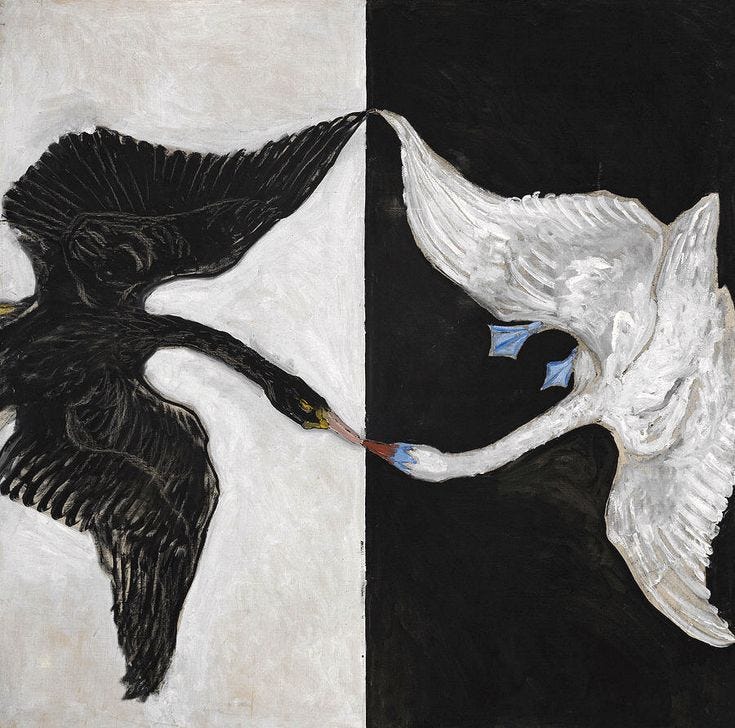
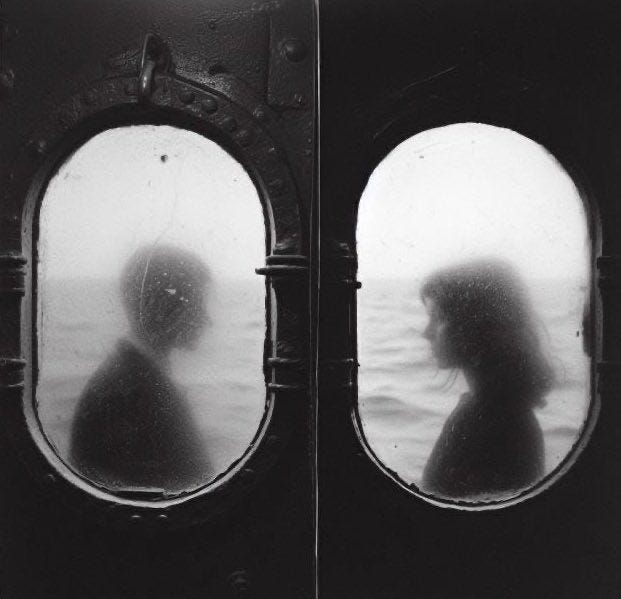
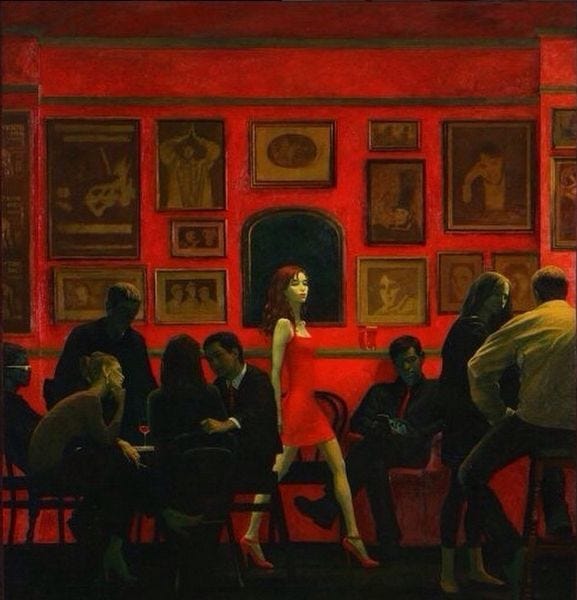

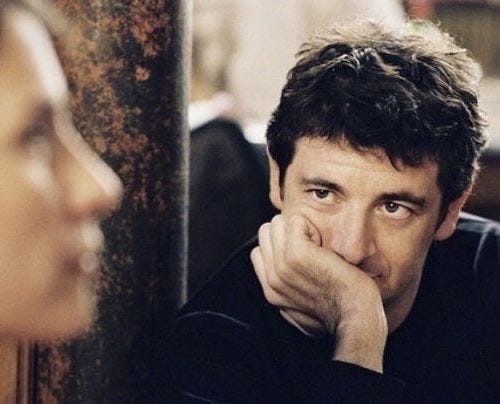
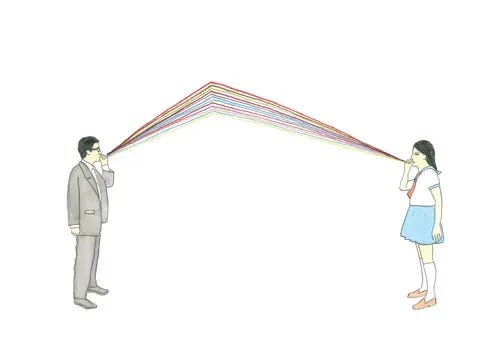
I’m not entirely sure “precision” is the word I’d choose, though I do see it as an initial stage where someone begins to distinguish who they are and develop more of their own identity. As you said, “I think the ideal state might be something else entirely,” and I think that’s exactly why I can’t fully agree, because the perfect scenario isn’t about setting up sections of your being and labeling them, but about reaching a point in your own development where you read others (and yourself) in a meta way, in other dimensions, and it becomes ridiculously obvious when others “don’t get you.” They genuinely don’t see everything you see, even if you don’t say much, don’t show clear lines, don’t have the most coherent and refined definitions in words, the moment another person with the same capacity meets you, you’ll both know immediately. And yes, they’ll be able to read you perfectly, but not because you made the path easier. That’s why I can’t embrace the idea of being fully precise and defined, because in people like this, the “self” exists within a vast, multidimensional web: organic, fluid, and in constant motion. There are outlines, yes, but they’re more like deep guiding principles than neat labels; anchors that exist beyond just words or social frameworks. It’s not a tidy map, but a living structure where meaning comes from the interplay of perceptions, connections, and dimensions. Trying to reduce it to exact definitions misses the truth entirely. Yet someone who has developed this same capacity can step into that complexity, navigate it effortlessly, and even love on a depth that’s unreachable for those who can’t see themselves in this way.
Anyway, I really enjoyed this piece, and fun fact, I’m here because my boyfriend recommended your substack.
"I firmly believe that what we seek is seeking us and the fastest way to attract what’s meant for us all is to express yourself so honestly that everything misaligned falls away on its own."WOW! What a stunning post.Thank you for writing it! I will definitely be returning to it over and over again.